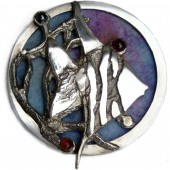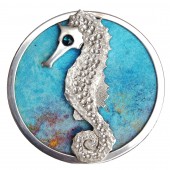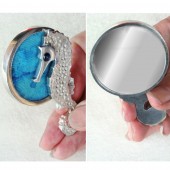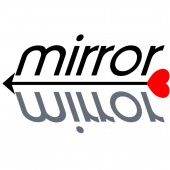Oceana Make-up mirrors by Clive and Tina Bullivant |
Home > Winners > #31535 |
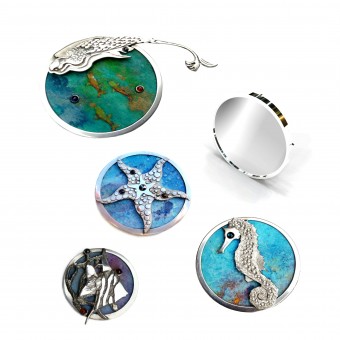 |
|
||||
| DESIGN DETAILS | |||||
| DESIGN NAME: Oceana PRIMARY FUNCTION: Make-up mirrors INSPIRATION: Design developed to a brief for accessories, in response a request for a range of that returned glamour and artistry in cost conscious materials. The aesthetics for the range was driven by a study of marine life and the jewel like properties of sea creatures. UNIQUE PROPERTIES / PROJECT DESCRIPTION: These designs bring rich ornament and desirability to an otherwise functional product. It is part of a range of designs which are collectible as well as practical increasing the commercial opportunity. Each mirror utilizes a unique combination of materials and traditional craft techniques in achieving high quality highly decorative accessories. OPERATION / FLOW / INTERACTION: The mirrors are ergonomically sized for practicality of use. The mirrors are acrylic for safety when carried in purses and bags. Each has a protective velvet pouch to prevent scratching. The backs are highly ornamental utilizing pewter and hand coloured organza which is sealed to allow for cleaning. The one piece design and use of acrylic keeps the weight down and the use of a variety of semi-precious stones increases desirability. PROJECT DURATION AND LOCATION: The project was begun in May 2013 and prototypes were completed in September FITS BEST INTO CATEGORY: Fine Arts and Art Installation Design |
PRODUCTION / REALIZATION TECHNOLOGY: The products comprise gravity cast pewter frames which are hand finished. Colour is introduced to the mirror backs through hand coloured organza. Mirror discs are laser cut in acrylic. SPECIFICATIONS / TECHNICAL PROPERTIES: Large mirrors are 73mm in diameter, small mirrors are 48mm diameter. Products are boxed in red velour jewel cases and come with red velvet pouch. TAGS: Purse mirror, hand bag, accessories, collectable, ornament, jewel, make up. RESEARCH ABSTRACT: We researched existing and traditional make up mirrors and compacts and surveyed a target market of women in the 30 to 50 age bracket to secure an acceptable theme for the range, and discovered two primary uses for the mirrors one small easily carried in a purse and one larger which could be left on show on dressing tables. Simple ergonomic models allowed for accurate sizing for specific purposes. CHALLENGE: Well respected craft techniques were deliberately chosen to ensure that the product could be easily produced. The main challenges were firstly visual in achieving a balance between the eye-catching and the functional which was achieved through good feedback from the client and focus group. Secondly the selection of materials which had to display quality and luxury but be cost effective. ADDED DATE: 2013-12-01 02:27:07 TEAM MEMBERS (2) : C Bullivant and T Bullivant IMAGE CREDITS: Clive and Tina Bullivant, 2013. |
||||
| Visit the following page to learn more: http://bit.ly/1dND1SL | |||||
| AWARD DETAILS | |
 |
Oceana Make-Up Mirrors by Clive and Tina Bullivant is Winner in Fine Arts and Art Installation Design Category, 2013 - 2014.· Press Members: Login or Register to request an exclusive interview with Clive and Tina Bullivant. · Click here to register inorder to view the profile and other works by Clive and Tina Bullivant. |
| SOCIAL |
| + Add to Likes / Favorites | Send to My Email | Comment | Testimonials | View Press-Release | Press Kit |


